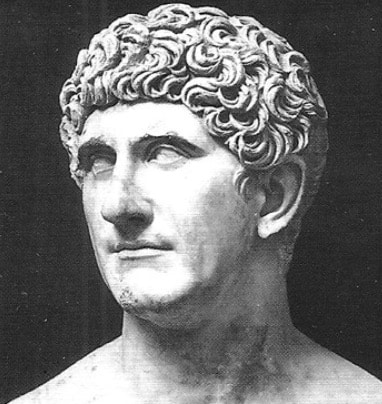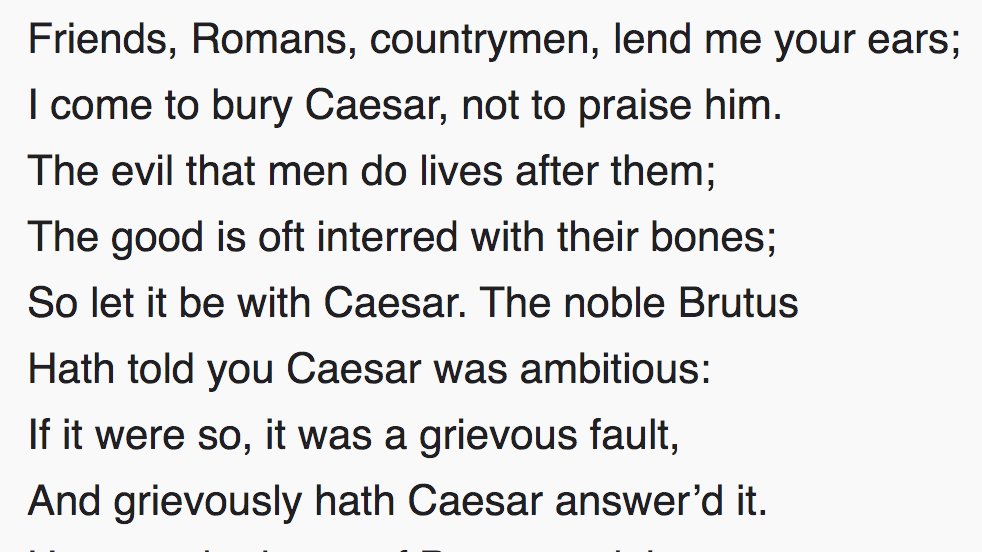
Marcus Antonius, commonly known in English as Mark Antony, was born on January 14, 83 BC, in Rome, Italy. He came from a distinguished Roman family with political connections. His father, Marcus Antonius Creticus, was a praetor, and his mother, Julia Antonia, was a relative of Julius Caesar, a Roman politician and military commander who played a significant role in the later stages of the Roman Republic. Antony began his military career as a cavalry commander under Julius Caesar in Gaul. His skill and bravery in various campaigns eventually brought him to the attention of Caesar.
Antony supported Julius Caesar during the civil war against Pompey, and entered Roman politics, becoming a tribune of the plebs in 49 BC. After Caesar’s assassination in 44 BC, Antony delivered the famous funeral oration that turned public opinion against the conspirators. In 43 BC, he allied with Octavian (the future Augustus) and Marcus Aemilius Lepidus to form the Second Triumvirate. The Triumvirs conducted proscriptions, purging their political enemies, including the notable proscription of Cicero. Antony’s relationship with Octavian began to deteriorate as his affair with Cleopatra, the Queen of Egypt, further strained his ties with Rome. Octavian used Antony’s association with Cleopatra to undermine his rival’s political ambitions.
In 31 BC, the conflict between Octavian and Antony came to a head in a naval engagement at the Battle of Actium. Octavian’s fleet, commanded by Agrippa, defeated Antony and Cleopatra’s forces. Following their defeat, Antony and Cleopatra, in 30 BC, committed suicide. Antony died by falling on his sword and Cleopatra followed suit. With her death, Egypt came under Roman control.
Mark Antony is remembered as a skilled military commander and a significant political figure in the transition from the Roman Republic to the Roman Empire. His relationship with Cleopatra and his role in the Roman political conflicts of the time have been subjects of literary works over the centuries. In 1599, William Shakespeare wrote the play, Julius Caesar, and in his intent to capture the nature of Antony’s funeral oration, immortalized Mark Antony in English literature. An excerpt from that speech in Shakespeare’s play is given below and the full speech is accessible at: https://en.wikipedia.org/wiki/Friends,_Romans,_countrymen,_lend_me_your_ears

Mark Antony’s life and career are often intertwined with the larger historical events of the Roman Republic’s decline and the rise of the Roman Empire.
